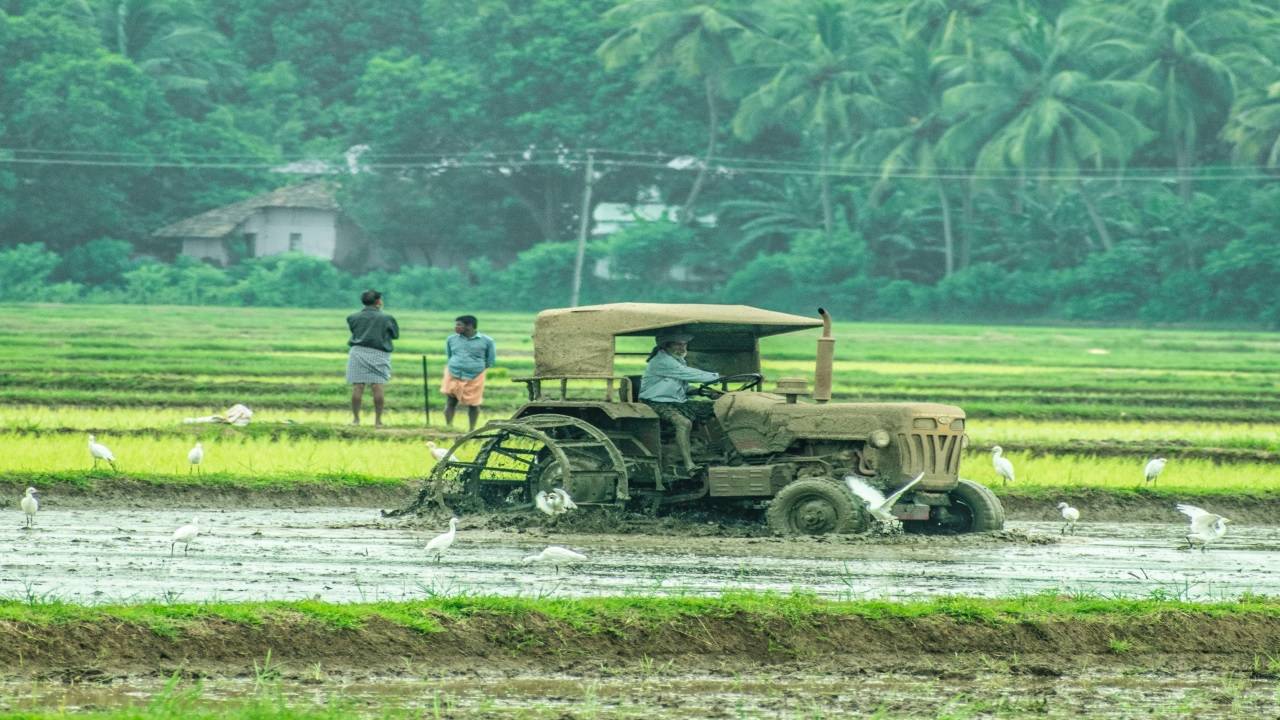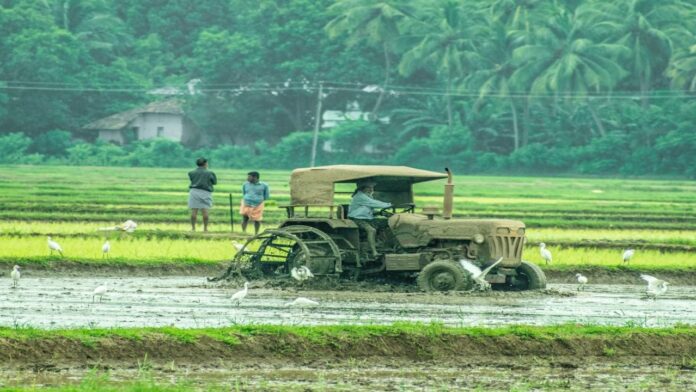
Agriculture is the major science and art of plant and animal husbandry, including soil cultivation, crop production, animal husbandry, and production and marketing of the resulting products.
However, Indian farmers face several difficult challenges:
-
Inflation in prices of fertilizers and agricultural products
The most important challenge is the fluctuation in prices of fertilizers and agricultural products. When supply exceeds demand, prices fall, causing financial loss to farmers. Conversely, failure to sell the product leads to waste.
-
Dependence on Monsoon and climate affected by global warming
Indian agriculture is highly dependent on the monsoon, which makes it vulnerable to the adverse effects of global warming. Irregular monsoons can result in droughts or floods, adversely affecting crop production.
-
Shortage of rural labor
Rural areas suffer from labor shortages as many people migrate to urban areas in search of better economic opportunities. This labor shortage negatively affects farm productivity and efficiency.
-
Lack of awareness about agricultural technology
There is a knowledge gap among farmers regarding modern agricultural technologies and practices. This lack of knowledge hinders their ability to increase production and adopt sustainable farming techniques.
-
Communication challenges
Farmers often struggle to access adequate markets due to inadequate communication infrastructure. This lack of connectivity makes it difficult to get fair prices for their agricultural products.
-
Difficulty getting a loan
Many small farmers face hurdles when trying to get loans from banks. Additionally, these loans can be difficult to repay, resulting in financial stress.
Problems faced by Indian farmers: Possible solutions
-
Price stabilization measures
The government can implement price stabilization measures, ensuring that farmers receive fair compensation for their produce. Establishing storage facilities for surplus crops and setting minimum support prices are effective strategies.
-
Development of irrigation infrastructure
Investment in irrigation infrastructure is essential to reduce dependence on monsoons. Building local irrigation systems and improving water management can ensure a continuous supply of water for farming.
-
Agricultural Extension Services
Efforts should be made to educate farmers about modern agricultural practices and technology. Establishment of Agricultural Science Centers like Krishi Vigyan Kendra in rural areas can facilitate knowledge transfer.
-
Accessible agricultural equipment
Availability of quality agricultural implements and machinery must be promoted. Ensuring that these tools are easily accessible to farmers, including those in remote areas, can increase agricultural productivity.
-
Easy loan procedures
Streamlining the loan application process and offering financial assistance to economically backward farmers can reduce their financial burden. Government-backed schemes and subsidies can provide much-needed support.
Thus, Indian farmers face multiple challenges, including price volatility, weather dependence, labor shortages, technological gaps, communication problems, and credit difficulties. Addressing these challenges requires a comprehensive approach, including price stabilization, development of irrigation infrastructure, agricultural education, improved access to tools, and simplified credit mechanisms. By implementing these solutions, India can empower its farmers and ensure the sustainability of its agricultural sector.
First Published: 09 Oct 2023, 15:20 IST
